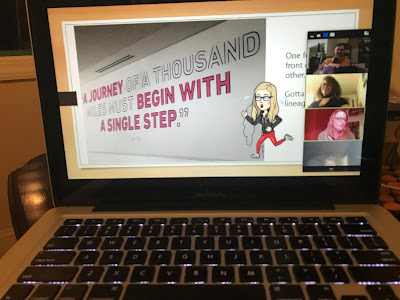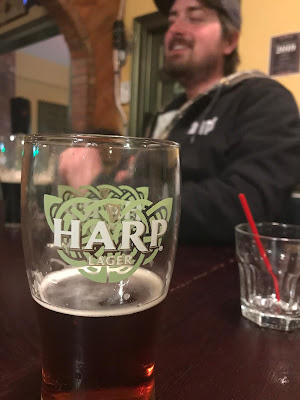This is slide 12 of my 30-slide presentation that was used (I talked fast) to give 20 minutes of background about the work of the Connecticut Writing Project, especially in relation to Project Citizen and Ubuntu Academy. Since 2014, it has been the air we breathe, so it felt good to pause and explain to others how the work came to be.
Since 2014, I've hired 111 instructors to cover the summer literacy labs offered to 894 youth. Each year, our programs diversify with a mission to support reading, writing and speaking opportunities. Over the last 5 years, my team of educators and I have provided over 35,000 hours of writing instruction, support, encouragement, opportunity and exploration to young people from multiple backgrounds to compose in a variety of genres. The student work we publish each year tells most of the story. With the right tools, division of labor, rules, motivations and especially community, everyone can achieve writing success.
There is a lot I can claim from the last 5 years, but yesterday I presented on the special partnership between Project Citizen: political activism and Ubuntu Academy: a literacy lab for immigrant and refugee youth. The data has proven to us:
Since 2014, I've hired 111 instructors to cover the summer literacy labs offered to 894 youth. Each year, our programs diversify with a mission to support reading, writing and speaking opportunities. Over the last 5 years, my team of educators and I have provided over 35,000 hours of writing instruction, support, encouragement, opportunity and exploration to young people from multiple backgrounds to compose in a variety of genres. The student work we publish each year tells most of the story. With the right tools, division of labor, rules, motivations and especially community, everyone can achieve writing success.
There is a lot I can claim from the last 5 years, but yesterday I presented on the special partnership between Project Citizen: political activism and Ubuntu Academy: a literacy lab for immigrant and refugee youth. The data has proven to us:
- Ubuntu, as a philosophical framework, has helped to create communities between writers from diverse backgrounds: Communities should be viewed as a tool and a motivator for helping teachers and students to achieve desired written outcomes.
- Arguments become a location for collaborative writing where youth should be partnered with youth to 'make their case': Divisions of labor in writing communities should be fair, equitable, and reflective.
- Although some youth gravitate towards an argumentative essay, others choose to express their opinions through other genres: Culturally relevant readings should be paid with culturally-relevant writing tasks.
- Community matters: Emphasis on a collective (we) enhances learning for both teachers and youth as individuals (I) for achieving written outcomes.
The writing created by teachers and students over two summers are testimony to this, and I feel grateful and privileged to share it with others at the Literacy Research Association.
Today, however, I think I'm going sight-seeing. I need the rest and relaxation.



































